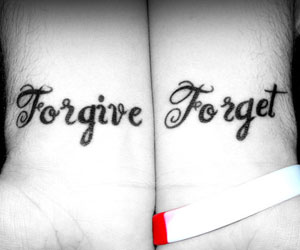
I turned 43 this year and I have always been told I need to “forgive and forget.” It’s a remarkable phrase, is it not? The idea behind this phrase subtly suggests that we should feel okay about the person and it is possible to really mentally forget what the person did to us.
The word order is important in this phrase. If we practice forgiveness, eventually, we will forget what happened. We will forget the pain and the hurt heaped upon us by someone else’s actions.
But do you know the origins of the this phrase? As best I can tell, the phrase as we have it is a transposition of a phrase that was found in both Shakespeare’s “King Lear” and Miguel de Cervantes’ “Don Quixote de la Mancha.” The original phrase is “Let us forget and forgive injuries” in “Don Quixote de la Mancha” and “Pray you now, forget and forgive” in “King Lear.”
Do we have the order wrong? Is it really that we must forget so that forgiveness is complete?
Forgetting
First, we never really forget. Neuroscience is teaching us that we have so many different pockets of memory that in a normal, healthy brain, we do not forget. It stays there, though sometimes we just can’t bring it to our conscious memory. In that way, our forgetting is similar to our attempt to delete a file on a computer hard drive; unless special actions are taken, you never really delete it. File information is maintained in a directory so your operating system can find it. All that “delete” does is erase the file’s reference information. Your operating system can’t find it, but the …read more
Read more here: Faith in a Post-Everything Culture






